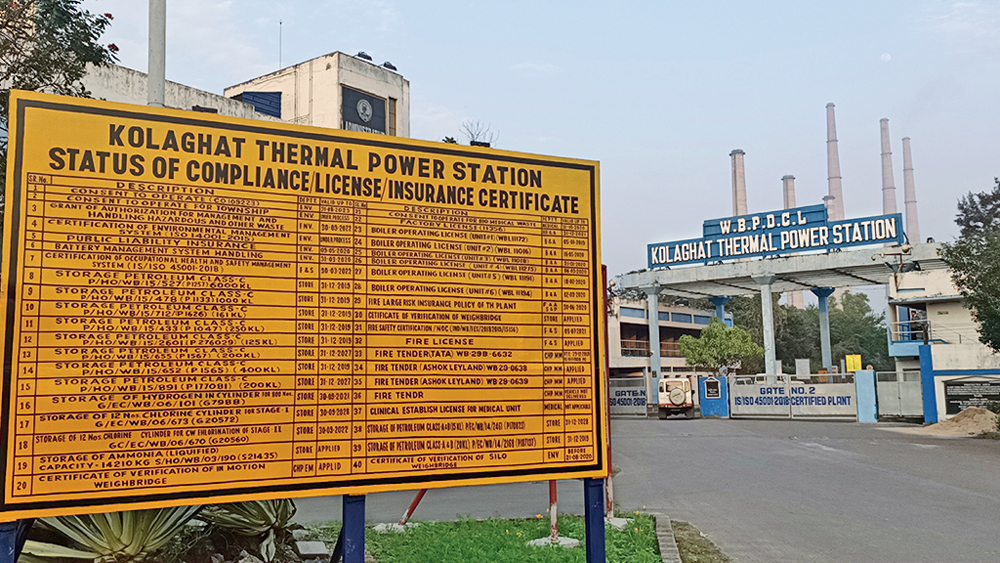The Kolaghat thermal power plant, the second largest generating station by capacity under state government control, has produced the lowest amount of electricity as a percentage of the target among the six state-owned units.
Bengal power department officials have attributed a combination of slowdown in overall demand, especially in the winter season, and high generation costs as the key reasons for the low generation.
Of the six units of 210 MW capacities each, only one unit is running at present while another unit is being overhauled. The remaining units are not in operation.
According to data from the Central Electricity Authority, the Kolaghat plant has achieved 70.03 per cent of planned generation between April 1, 2019 and January 5, 2020 — against 99.54 per cent of Bakreshar, 73.87 per cent of Bandel, 94.45 per cent of Sagardighi, 103 per cent of Santaldih and 82.04 per cent of Durgapur Projects Ltd (DPL).
State power minister Sobhandeb Chattopadhyay said that despite adequate coal stock the generation at Kolaghat has taken a hit due to lack of demand and overhauling work.
“We have adequate coal but there is hardly any need for generation because of lack of demand. Moreover, with DPL coming under the WBPDCL net, the distribution company is getting its supply from there. We are optimistic that once the summer season comes in and the overhauling work is over the other units will start generation,” the power minister said.
“We have six units at Kolaghat. Of this there is overhauling work going on in one unit. The remaining five units are ready for generation but only one unit is being run as per demand. As it is the winter season, there is very little demand,” said P.B. Salim, chairman and managing director of WBPDCL.
He said the state will meet the deadline to comply with flue-gas desulphurisation (FGD) installation.
Pollution problems
According to WBPDCL sources, Kolaghat is an old unit, with high generation cost and more polluting. It needs 1.2 tonnes of coal to generate 1MW against 0.75 tonnes by the other units. As a result, the state distribution company (WBSEDCL) is buying power from cheaper sources.










